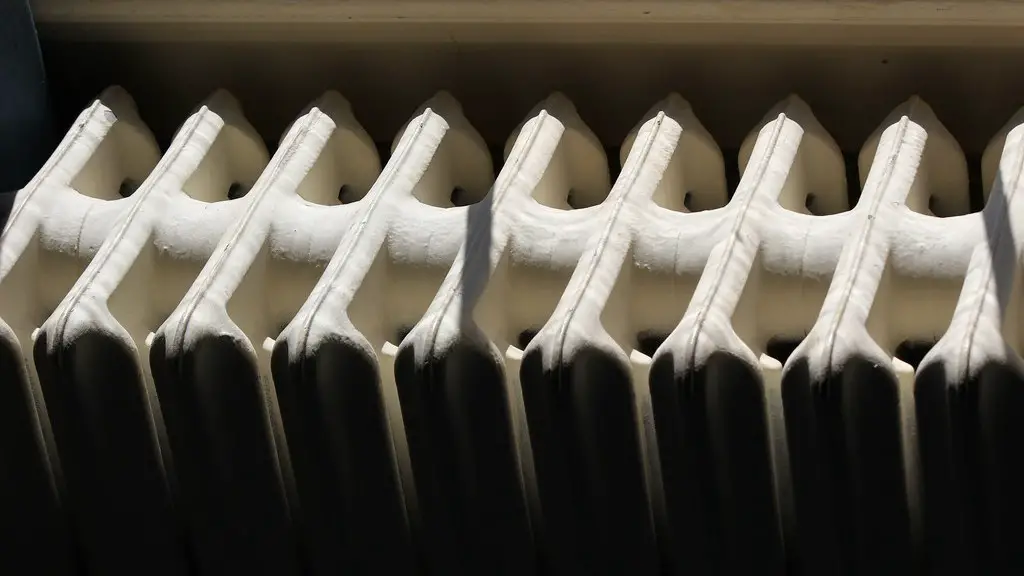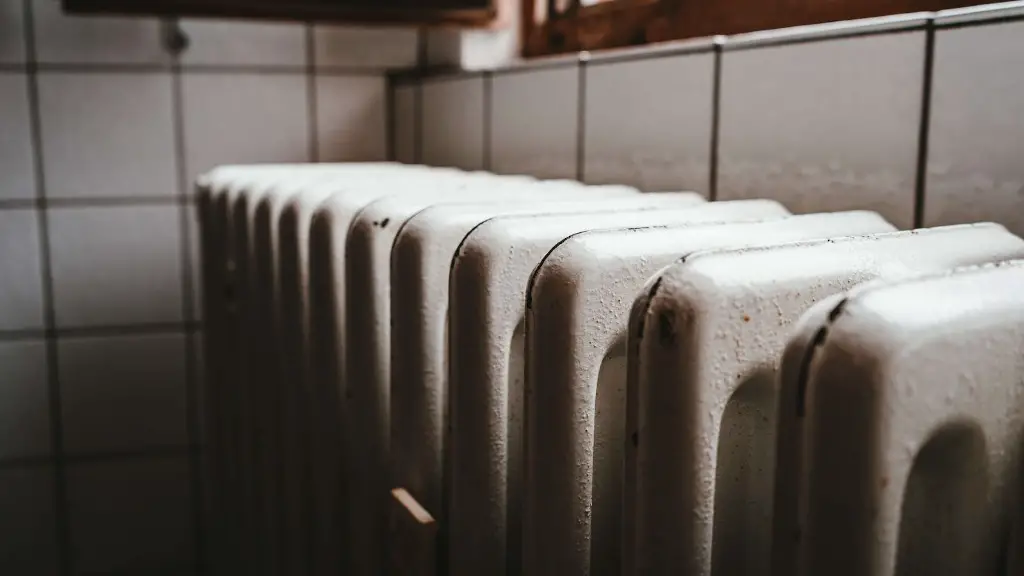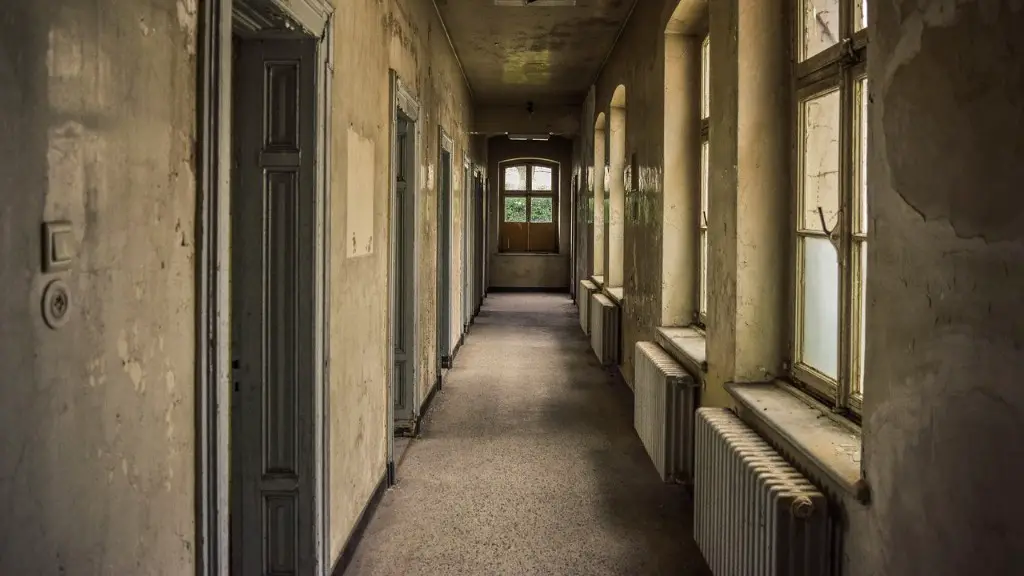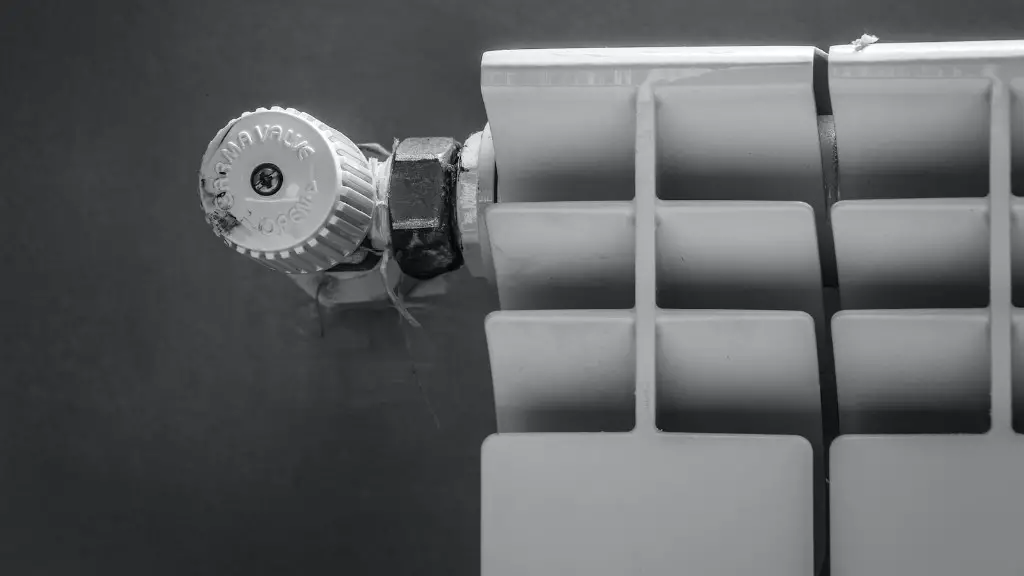Radiator pipes can freeze during cold weather if the water inside them turns to ice. This can happen if the water is not being circulated properly, or if the pipes are exposed to cold air. If the pipes freeze, it can cause the radiator to stop working properly, and the water inside the radiator can become frozen, which can damage the radiator.
Radiator pipes can freeze if the temperature outside is low enough. This can happen if the radiator is located near an exterior wall or if the insulation around the pipes is not adequate. radiator pipes can also freeze if the water in the radiator itself is not circulating properly.
At what temperature do radiator pipes freeze?
If you have uninsulated pipes, they can freeze when temperatures reach -6 degrees Celsius. This can cause your water supply to be cut off or cause damage to your pipes. To prevent this, you can insulate your pipes or keep them warm.
Frozen pipes can be a major problem during the winter months. To avoid frozen pipes, insulate your pipes and water tanks and wrap them in cold areas with pipe sponge covers. Leave your heating on and set your thermostat at 12-15C when you’re away from the property. Open cabinet doors and loft hatches to let heat in, and run your taps regularly to keep water moving. Finally, drain your water system before the cold weather hits to prevent it from freezing.
What happens if radiator pipes freeze
If you think your pipes have frozen over, you’ll need to act quickly to prevent any further damage. Frozen pipes are a big problem and can stop your heating and hot water from working properly. They can also burst, causing leaks or even flooding. So, it’s important to thaw your pipes as soon as possible to avoid any major issues.
If you have a radiator that is not protected against frost inside, it can freeze. This can happen in houses that are already inhabited, as well as in houses that are still being built. To prevent your radiator from freezing, make sure to keep it protected from the cold.
Will pipes burst if heat is turned off?
If you’re leaving your home for an extended period of time, it’s important to make sure that your pipes are protected from the cold weather. Without the heat on to keep your home above freezing, you risk pipes freezing, which can result in burst pipes. And since no one is in the home, it could be days or even weeks before the damage has been discovered. To avoid this, you can have a friend or neighbor check on your home regularly, or you can invest in a pipe protection system.
If you live in an area that experiences below-freezing temperatures, it’s important to be aware of the risk of burst pipes. Pipes are most likely to burst when exposed to below-freezing conditions for six hours or more. This can happen throughout winter and early spring. Burst pipes could lead to a disaster, bringing severe water damage to your home. To avoid this, take steps to insulate your pipes and keep them warm. If you know a cold snap is coming, let a trickle of water run through your pipes to help prevent them from freezing. And if you’re going to be away from home for an extended period of time, be sure to shut off the water to your home and drain your pipes to prevent them from bursting while you’re gone.
At what temperature do pipes burst?
At around 20 degrees Fahrenheit, water starts to freeze and expand, which puts extra pressure on your pipes. This extra pressure can cause your pipes to burst or freeze. To avoid this, you should take precautions to protect your pipes when the temperature starts to get that low. This might include adding insulation to your pipes or letting a trickle of water run through them to keep them from freezing.
“Regardless of how long you will be traveling and away from home, keep your thermostat set at 68 degrees Fahrenheit or above. This will help to keep the pipes on the inside of the home from freezing and the ones under the home at a slightly higher temperature as well.”
Should I turn off water if pipes are frozen
If your pipes are frozen, the best thing to do is to find the meter and shut off the water. You should also open up some faucets to relieve the pressure as the thaw begins. When checking your pipes, be sure to do so carefully.
If you have frozen pipes, the best course of action is to call a plumber to have them thawed out safely. Although it is technically possible for pipes to thaw on their own, it is not advisable to wait and see if this happens. The reason for this is that as the ice begins to thaw, any water caught between the faucet and the ice will cause increased pressure within the pipe. That increase in pressure can lead to frozen pipes bursting, which can cause significant damage to your home.
Should I put heating on if pipes frozen?
If your pipes are frozen, don’t use central heating to thaw them out. Check for dripping water and split pipes. If there aren’t any leaks, turn your stop tap back on and open a tap inside the house. Use a hairdryer to gently melt the ice in the direction of the flow of water; never use a naked flame.
If you have a natural gas central heating system and your water pipes have frozen, don’t worry! In fact, in very cold weather your central heating boiler can be left operating at a low setting to prevent water pipes from freezing. So go ahead and use your central heating system to keep your home warm and toasty – your water pipes will be just fine.
How cold does it have to be to damage pipes
Just because the temperature outside is 32 degrees, it does not mean that the pipes will reach those temperatures. As a general rule, the temperatures outside must drop to at least 20 degrees or lower to cause pipes to freeze.
If you see a bulge or crack in a pipe with ice seeping out, this is a clear indication that the pipe has burst. Another sign to look for is frost on the outside of the pipe. If you notice a foul smell coming from the drain or faucet, this is also a warning sign that there may be a problem. If you turn on a faucet and there is no water or only a slow trickle, this is another indication that there may be a problem with the plumbing.
How do you unfreeze pipes in your house fast?
If you have frozen pipes, you can try using a space heater, heat lamp, or hair dryer to thaw the frozen length of pipe. Wrapping freezing pipes with thermostatically controlled heat tape is also an effective way to quickly thaw a trouble spot. However, don’t thaw pipes using a propane torch, which presents a fire risk.
If you have a boiler that runs on oil or LPG gas, it is recommended to leave the heating permanently on to maintain a minimum temperature of 13 degrees C. This way, you can be sure that you have enough fuel to heat your property over winter.
Final Words
Yes, radiator pipes can freeze. This typically happens when the temperature outside is very cold and the heat inside the house is not turned on. The water in the pipes can freeze and expand, causing the pipes to burst.
The bottom line is that yes, radiator pipes can freeze – but there are steps you can take to minimize the risk. Be proactive about maintaining your heating system, and if you do experience a frozen pipe, take care of it quickly to avoid any serious damage.





